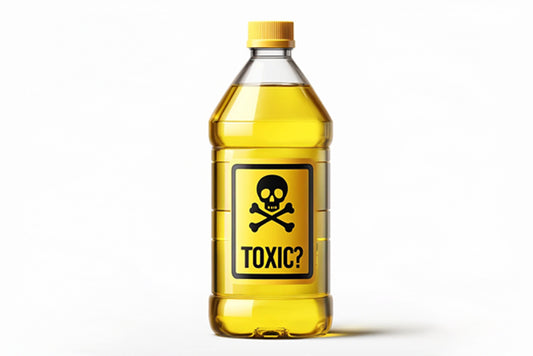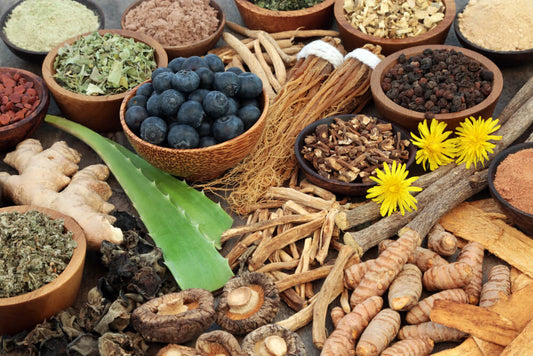
Are Superfoods Safe For Kids?
As parents, one of the most common struggles you might be facing is wondering whether you’re providing your child with proper nutrition. Even trying to get them to eat other than their favourite snacks can put your patience to the test.
The spotlight on superfoods in recent years has been making many parents wonder about its effectiveness and whether it would be safe to offer such to their children. There are many common superfoods out there and we’ve listed down a few that you can easily add to your child’s existing diet.
Developmental Stages of Children and Nutrition
Since a child has been growing inside a mother’s belly during pregnancy, the issue of proper nutrition for the fetus has been a priority, and a top one at that. Giving birth to a healthy, bouncing baby boy or girl always gives parents a sense of relief, but the journey of properly feeding the child is only beginning.
For the first four to six months, the infant is fed with breast milk, formula milk, or both. By the time he’s able to support himself and sit up properly and shows interest in food, the baby’s pediatrician will recommend that you introduce solid food to his diet.
From here on out, your child will be able to experience a wide variety of food and flavours.

Emphasising proper nutrition during crucial stages in your child’s life has been a popular topic for many years. As we get to know more about the different developmental stages of a child, we become more aware of the effect of proper nutrition.
Unfortunately, it is becoming more and more difficult for parents to feed their children, let alone offer them a nutritionally balanced meal. This is one of the reasons why mums and dads alike are always on the lookout for “superfoods” -- nutritionally dense foods that can pack a punch.
It’s no surprise that proper nutrition has a positive impact on a child’s development. Certainly it is not the only factor to watch out for, but it is one that parents have control over.
Malnutrition
Inadequate nutrition during infancy, childhood, and adolescence can lead to problems involving growth, may weaken the immune system, and affect cognitive abilities. Numerous studies have been published comparing children who are malnourished and those who are not. The differences are astonishing, but not surprising: those who have been given the right kind of food are ahead in terms of physical and mental development compared to their malnourished counterparts.
Superfoods and Children
The popularity of superfoods has been growing over the years and if you’re wondering if they’d be safe for your children, the answer is yes, they are.
Superfoods aren’t magic food; they’re just more nutritionally beneficial than others. They usually have higher vitamin and mineral content, which is what children need during crucial stages of development. For example, their cognitive development needs essential fatty acids and they need calcium to build strong bones and teeth.
Macronutrients (carbohydrates, protein, and fats) and micronutrients (vitamins and minerals) are what make up a child's dietary needs. From infancy until adolescence, macro and micro nutrients will vary as the child grows up. Their body’s changing needs is the reason why certain macro and micro nutrients will be helpful for a particular developmental stage.
The Best Superfoods for Children
The idea of incorporating superfoods into your child’s diet may seem a little overwhelming. And intimidating, but it doesn’t need to be. We’ve put together a short list of some of our favourite superfoods to include in both our diets and our kids.
Fish and Seafood
Fish and seafood are packed with omega-3 fatty acid such as DHA, which is a crucial nutrient for optimal brain development. These healthy fats are heart-friendly and are easily absorbed by the body.
During the first years of your child’s life, their brains grow at a rapid rate. In fact, they have the capacity to learn new languages easily before they reach the age of 7. During this stage their brains are absorbing as much information as it can, often acting like sponges. Help their little brains by offering fresh tuna or salmon. If they aren’t too keen on the taste, canned seafood can be an alternative.
Another alternative is to use liver oil, particularly from the cod and ratfish. Both fish species have extremely high omega-3 fatty acid content, as well as Vitamin A and D. Using one of these oils is much more convenient (all it takes is a few drops a day for the daily recommended dosage), plus you don’t have to worry about food preparation.
Eggs
Eggs are a great source of protein for your little bub. Did you know that growing children need more protein than adults? Protein helps brain development, improves the immune system, and the digestive tract.
Go for organic, free range eggs for a more nutritional breakfast. Refrain from frying eggs and instead offer them hard boiled. If you’re feeding a toddler, cut them into bite size pieces to avoid choking.

Chia seeds
Unfortunately, some kids suffer from egg allergies. Chia seeds is a great plant-based alternative as it is jam-packed with Omega-3 fatty acids. Iron helps transport oxygen properly to the rest of the body while calcium is a necessary mineral for optimal bone growth and development.
Chia seeds are easy to prepare and integrate into your child’s existing diet. It doesn’t need to be cooked to be enjoyed. Add it greek yogurt or their favourite cookie recipe for more of a nutritious snack.
Berries
Strawberries, blueberries, acai berries, elderberries, maqui berries… Whatever fruit your child might be into, berries are always a “berry” good treat. Perfect on their own, they can satisfy anyone’s sweet tooth. Choose to serve it frozen during hot, summer days or turn them into delicious smoothies for a filling breakfast before they head off to school. The great news is that berries are also available in a freeze dried form that can make them easy to add to many dishes, providing both a delicious and healthy addition at meal time. See the full range of super berries available at Superfoods Australia here.
Berries have always been a popular superfood and is quite known for being a healthy and yummy snack and add-on. High antioxidant levels mean that it helps the body get rid of free radicals. Vitamin C, an immune system booster, is essential nowadays to help their little bodies protect themselves from viral and bacterial infections as well as help wounds heal more quickly. Vitamin C is also essential for tissue growth and development especially during this crucial time of growing up. Their bodies will be undergoing a lot of physical changes and they will need all the help they can get. Berries are also loaded with manganese, a mineral that supports connective tissue, strengthens bones, and the blood’s clotting abilities.
The Bottomline
As your child’s primary caregiver, you have the responsibility to provide them with food, a basic necessity for survival. As your child grows, their nutritional needs change over time. Many superfoods out there are full of vitamins and minerals that aid in the proper development of your child. Make sure to incorporate superfoods into their favourite foods for a happy, healthy kid.
You’re doing awesome, mum and dad. Enjoy these precious moments and happy eating!













